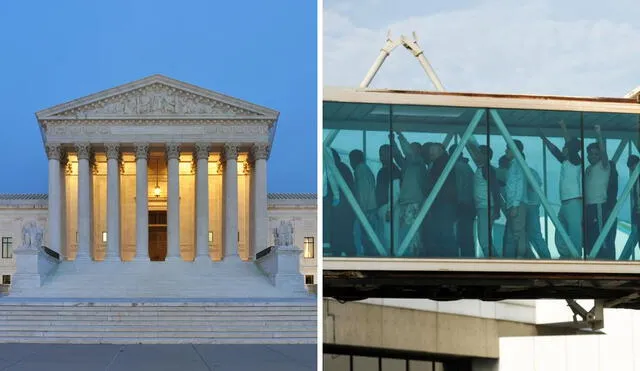US Immigration: Supreme Court suspends deportations under Alien Enemies Act
The U.S. Supreme Court has ordered a temporary pause on migrant deportations under the Alien Enemies Act while an emergency appeal regarding due process and the rights of detainees is resolved.

The U.S. Supreme Court issued an order early Saturday morning temporarily halting the deportation of a group of migrants in Texas, allegedly subject to the Alien Enemies Act. The decision comes amid an emergency appeal filed by the detainees' attorneys, who claim their clients were not properly notified to challenge the measure.
Conservative Justices Samuel Alito and Clarence Thomas expressed their dissent with the court's decision, which has yet to provide details on the reasoning behind its ruling. The order asks the Trump administration to refrain from carrying out the deportations until a Louisiana appeals court rules on the case and the appeal to the high court is resolved.

ALSO SEE: US judge threatens contempt of court ruling against Trump administration over deportation flights
Legal dispute over application of 18th-century law
The controversy revolves around the use of the Alien Enemies Act, an 18th-century law that grants broad powers to the president in times of war. Lawyers for the migrants, represented by the American Civil Liberties Union (ACLU) and Democracy Forward, argue that the government is using this law to evade regular immigration procedures and expedite deportations without due process.
Federal Judge James Boasberg, who previously heard the case in Washington, indicated that he did not have the authority to halt the deportations, although he expressed concern about the government's actions. In an emergency hearing, Boasberg questioned the Justice Department about whether the deportations would take place that weekend, to which the government responded that, although no flights were scheduled, it reserved the right to proceed.
Ongoing court proceedings and due process concerns
Judge Boasberg had previously ordered contempt proceedings against the administration for allegedly ignoring a previous decision suspending deportation flights. This order was later overturned by the Supreme Court. However, a new appeal seeks to determine whether those proceedings should be reactivated, while legal disputes continue.
During the most recent hearing, the ACLU attorney presented evidence that migrants had received deportation notices with less than 24 hours' notice, with no clear avenue for appeal. The Department of Justice representative argued that the notice requirement does not necessarily imply an obligation to allow for immediate appeal, raising concerns on the part of the judge about compliance with the current court orders.












